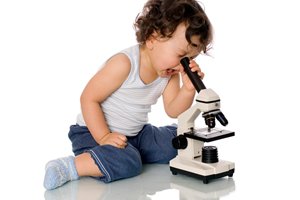
Get ready to read a lot of labels and give up a few vices, because there are some things you should avoid when getting ready for baby.
It should be noted that not everything detrimental to fertility can be avoided 100 percent. But cutting some toxins out of your life may just be the advantage you need to conceive.
1. Phthalates
The U.S. Centers for Disease Control and Prevention noted that phthalates are chemicals that make plastic flexible, but also hard to break. They can be found in a variety of household products, such as soap, various adhesives, shampoo and some nail polishes. The exact impact that the chemical has on people is unclear, but in lab tests it has been shown to decrease fertility in animals. Check the labels of all products that you use regularly, and if you don't recognize an ingredient, research it to determine exactly what it is. Don't forget that this chemical also appears in makeup, and even though your face is set apart from your reproductive organs, it can still affect your chances of having a baby.
2. Bisphenol A
Remember BPA? BPA, otherwise known as bisphenol A, is found in most plastic, namely water bottles. This chemical can affect both men's and women's fertility, so you and your partner should be checking to make sure you're not drinking out of anything that contains BPA. You can tell by looking at the bottom of the bottle for an embossed 3 or 7 within the recycling symbol. We'd be amazed if you avoided it altogether, but cutting it out as much as you're able can only help!
3. Caffeine
You had better prepare for some sleepy mornings! Luckily, scientists don't recommend that you ditch the latte completely, just keep the caffeine count to a minimum – at most one cup of coffee's worth per day. One way to survive this energy slump is to ask for half-caf at your local coffee shop – you still get the taste to fulfill your habit but without hindering your newborn preparation. Just remember that even decaf coffee contains a small amount of caffeine.
4. Alcohol
This one shouldn't come as a surprise. If you're not supposed to drink when you're pregnant, then you probably shouldn't drink when you're trying to conceive. But, like caffeine, a small amount won't hurt you much. Excessive drinking affects your reproductive system enough to seriously alter your chances of having a baby, so skip the keg stands. And if you're worried your social life will flounder under a sober lifestyle, think of it this way: Everyone needs a designated driver.
5. Tobacco
Similar to alcohol, most women know that they shouldn't smoke when they're pregnant. But it goes even further than that – smoking can also affect your chances of conceiving in the first place. As can prolonged exposure to secondhand smoke. If that's not enough incentive to get your partner to quit smoking, tobacco also makes sperm less potent, making it even harder for you to get pregnant.


Leave a Reply